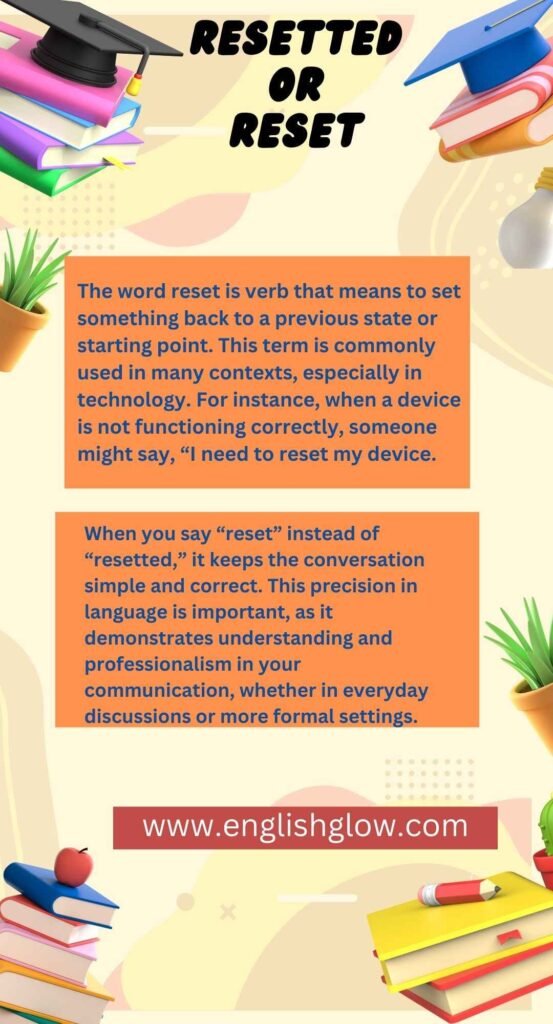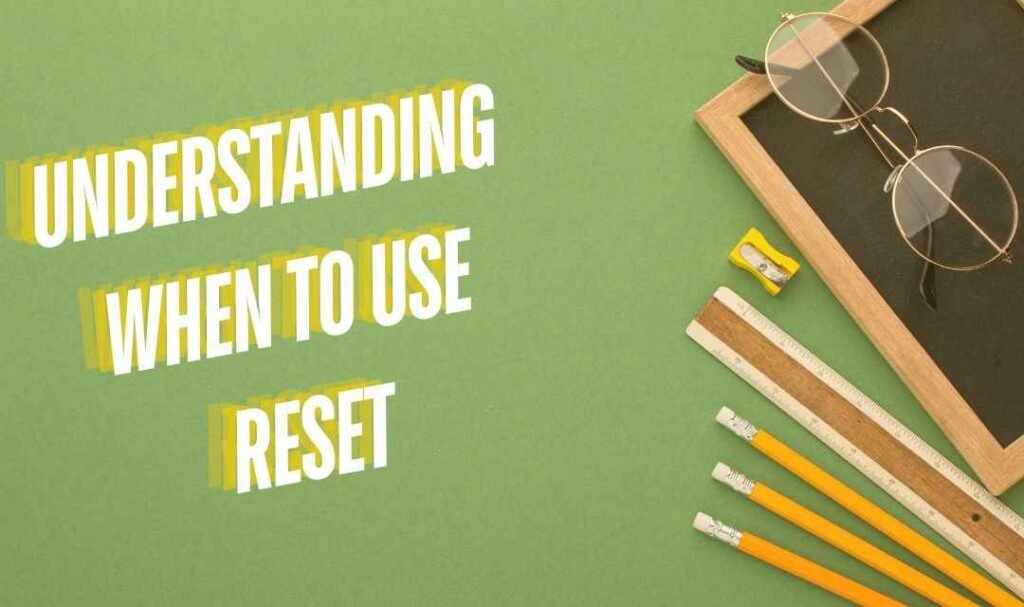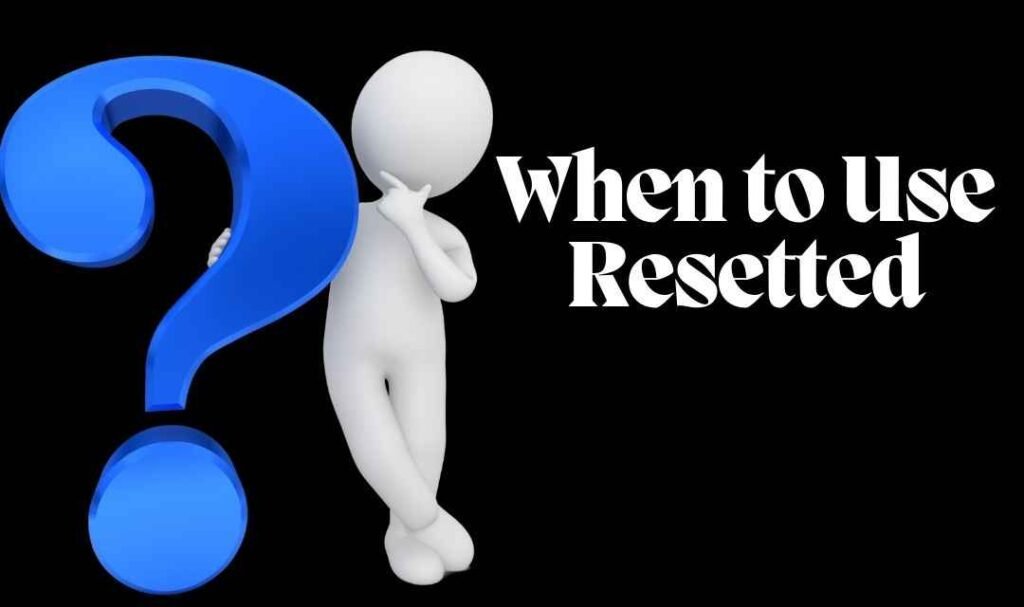
For example
Someone might say, “Yesterday, I reset my password.” Here, the spelling stays consistent, helping to avoid misunderstandings in writing or conversation. Using this word correctly can lead to better clarity in communication.When you say “reset” instead of “resetted,” it keeps the conversation simple and correct. This precision in language is important, as it demonstrates understanding and professionalism in your communication, whether in everyday discussions or more formal settings.
you might enjoy reading: How-Tos or How-To’s? Discover the Correct Plural Form Now!
Understanding When to Use Reset
The word “reset” is commonly used in many situations. It is the correct form when referring to the past tense of an action in most contexts. In English, there is a quirky rule where some verbs, especially irregular ones, might change completely. However, “reset” does not change form. For instance, if someone says, “I reset the device,” they are using the standard past tense. This usage applies in both technical and casual speech.
You might also encounter “reset” when talking about various devices. For example, you could say, “I need to reset my game console” if it’s not working properly. It’s clear and straightforward, making it easy for others to understand what you mean. In summary, whenever you are discussing resetting a device, a password, or any action that requires going back to a previous state, “reset” is the word to use.
you might enjoy reading: How Does It Work or How It Works? Uncover the Key Difference Now!
Example
She reset her password yesterday.
When to Use Resetted
When it comes to the word “resetted,” it is often mistakenly used in English. This form is generally considered incorrect and is rarely found in formal writing or spoken language. Many people yearn to make verbs fit common patterns, which can lead to errors. For instance, “resetted” might linger in some dialects or among non-native speakers. Teachers often emphasize that sticking with “reset” is the best choice. It is important to encourage the use of “reset” for past actions to enhance clarity in communication and avoid confusion.
An example of the incorrect usage is: “She resetted her password yesterday.” Instead, it should be: “She reset her password yesterday.” This highlights that “reset” is the correct past tense form of the verb. Understanding this distinction helps maintain professionalism in writing.
Overall, it is crucial to remember that “reset” is an irregular verb. Many mistakenly think “resetted” is correct because they follow the pattern of adding “-ed” to regular verbs. However, since “reset” does not change form, it is essential to use it correctly in both casual and formal settings.
FAQ
Have reset or have resetted: Which is correct?
“Have reset” is correct. The verb “reset” is an irregular verb, meaning its base form and past tense are the same. “Resetted” is incorrect and not used in standard English.
What is the meaning of resetted?
“Resetted” is not a correct word in English. The past tense and past participle of “reset” is simply “reset.” For example: “I have reset the password.”
What is the past tense of reset?
The past tense of “reset” is “reset.” It remains the same in both the present and past tense. Example:
Present: “I reset the device.”
Past: “Yesterday, I reset the device.”
Which is correct, reset or reset?
Both are correct, depending on the tense. “Reset” can be used as both the base form (present tense) and the past tense. Example:
Present: “I will reset the computer.”
Past: “I reset the computer yesterday.”
Is “resetted” correct?
No, “resetted” is incorrect. The correct past tense and past participle of “reset” is simply “reset.” It is an irregular verb, so it does not follow the typical “-ed” ending for past tense.
Will it be “reset” or “resetted”?
The correct form is “reset.” For example, “The system will be reset.” “Resetted” is not a valid word in English.
“Resetted” or “reset” for past tense: Which is correct?
The correct past tense of “reset” is “reset.” For example: “I reset the computer yesterday.” “Resetted” is not a correct form.
“Resetted” or “reset” for past participle: Which is correct?
The past participle of “reset” is also “reset.” For example: “The device has been reset.” “Resetted” is incorrect in both past tense and past participle forms.
What is a synonym for “reset”?
Some synonyms for “reset” include “reboot,” “restart,” “reinitialize,” and “restore.” These words can be used to describe the action of setting something back to its original state or restarting it.



